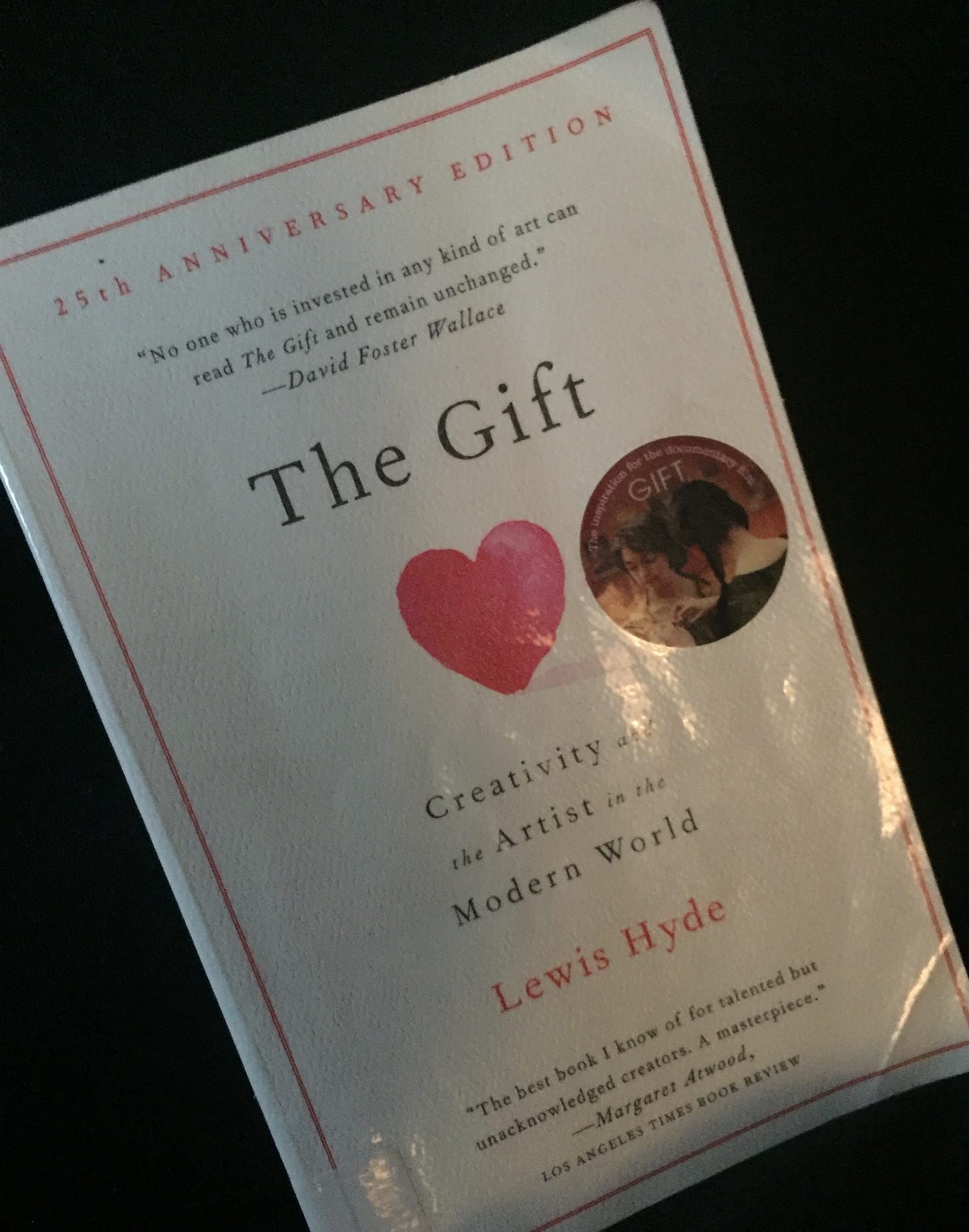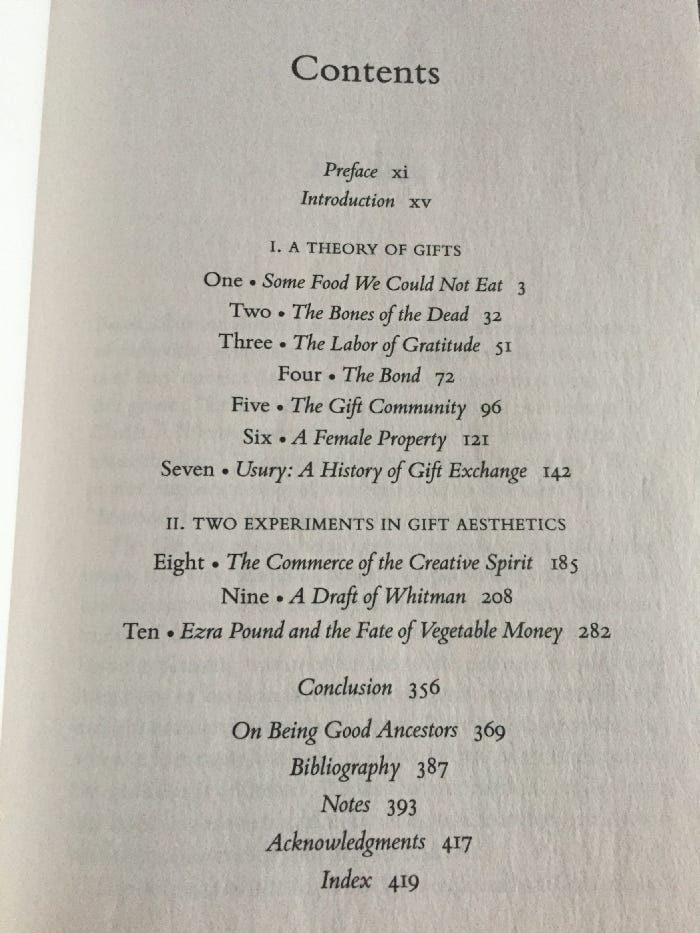The words in Hyde’s The Gift are a gift of validation to the artist, especially in these times, though written more than a quarter-century ago.
This is the second book I have read by Lewis Hyde, a man of eclectic thought and wisdom, yet all his words are imbued with humility that is heart-opening.
Each chapter begins several steps aside from its promise, and then circles (the whole does remind me of my Irish poetry instructor, once upon a time, and his story-telling…it does cause me to miss him). The closing paragraphs of each chapter require — from me anyway — a second or third close reading, with the impact. When Hyde arrives at what he is saying — it is all such a process of discovery — the result has a physicality to it; be prepared to have to right yourself, sit up, or get back on your feet.
He opens the early pages with the idea that “the gift must always move.”
“The gift leaves all boundary and circles into mystery… The passage into mystery always refreshes… If when we work, we can look once a day upon the face of mystery, then our labor satisfies.” (Lewis Hyde, The Gift, page 25)
That is with my emphasis. This is such a reminder of why we do what we do; on tough days, I think about these words: have I felt this today? Some days, I am encouraged to work on, for that moment.
The second half — in which Hyde scrutinizes the lives and gifts (“careers”) of Whitman and Pound — serves to gather together the earlier chapters. And in the conclusion, he speaks to how the journey of writing this book has changed his own mind in certain ways. The changes are not surprising; perhaps it is more about quiet and thoughtful acceptance of certain realities.
On a personal note, he causes me to long for another time and place. But he has given me insight into “how it is.”
“In a land that feels no reciprocity toward nature, in an age when the rich imagine themselves to be self-made, we should not be surprised to find the interior poverty of the gifted state replicated in the actual poverty of the gifted.” (Lewis Hyde, The Gift, page 195)
I can’t say the book has changed me, so much as it has caused me — as a writer — to feel seen and heard in the ways that are useful to feel seen and heard.






This book sounds very interesting. You have written a compelling review. I feel that once I indulge, I may, however, (as I wipe the grime from other pursuits from the creases of my hands) be ridden with the guilt of creative responsibility for not writing more. Or at least learning how to write more correctly.